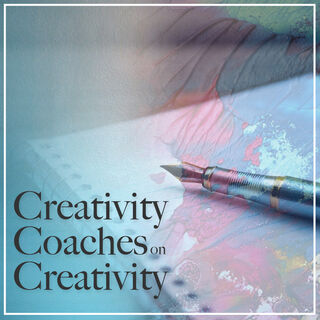Creativity
Ritual to Fuel Your Creative Work
Creativity coach Jeannene Bragg provides top tips on the creative life.
Posted April 25, 2021 Reviewed by Matt Huston

I maintain certain rituals in support of my creative efforts. One is to feel part of intellectual history and part of our communal travels on the international bohemian highway by ritualistically selecting my morning coffee cup from among cups from Prague, London, Berlin, Paris, Rome, and other stops on that shared highway. This starts my day in a dreamy, speculative way, as I wordlessly travel to some great city. In today’s post, creativity coach Jeannene Bragg explores the theme of rituals for creatives.
Jeannene wrote:
A new or recharged ritual may be just what your creative work needs. It can be as simple as lighting a candle to start your writing session or as large as a 10-day creativity retreat complete with an ending ceremony. Think of ritual as an intentional practice that fuels your creative work, a way to build a container or sacred space.
Your ritual can be spiritual or secular, complex or quite simple. Rituals can help begin or end a creative session, move you into deep work, or inspire you with new ideas. Some famous artists were known to have unusual practices, such as Igor Stravinsky standing on his head to dissolve blocks or Gertrude Stein's pre-writing soaks in an enormous custom bathtub.
Here are some building blocks to consider as you devise your own creative ritual. Experiment until you discover what works for you. Just because we call it ritual doesn't mean it has to be solemn or sacred (although it can be). Sometimes creative work blossoms when your approach is playful.
Time and Place: Some swear by using a consistent time or place to create; others break out in a sweat at the mere thought of such regularity. Consider setting a schedule that revolves around the cycles of the moon or the cycles of your laundry. Set a timer (perhaps randomly) and work until it goes off. Waiting for a bus or your kids' appointment, consider that an artistic window. Try getting up early, staying up late, or working before or after a nap. Walk until a place calls to you or make a list of all the all-night restaurants and work through it methodically.
Set the Stage: The right clothing or objects can add to a ritual. Put on a sacred cloak or your fuzzy slippers. Sit in a unique chair. Add a funny or inspiring image on your computer start-up screen. Try aromatherapy or a special bite to eat. Create a small bag of meaningful objects to carry with you to make any space your creative sanctuary … a crystal, a tablecloth, a battery-powered disco light.
Invite the Muse: Prepare your body or brain. Start with meditation, prayer, or mantra. Read source material or review your last session. Freewrite, brainstorm, or improvise to work your way into the tasks of the day. A round of push-ups or a conscious dance session might be ideal. Use music to drop into a state of deep work. Water often induces new ideas; try a ritual bath, shower, or foot soak.
Random Stimulus: Stuck or in need of a new direction? Pull an oracle card or find a random image online; put your music player on shuffle and start with a song you've never heard before. Look outside and let the first thing you see or hear inspire you. If you're stuck in a beginning, move to the middle or the end. Turn a book to a random page and see how it can inform your work.
Creative Cross-Training: Different art forms and formats can feed each other. Try a movement practice before you write. Let making music move you into painting. Take photos and build an improvised performance around them. Learn a new art to get back into beginner's mind and see how that changes your work.
Don't Forget Endings: Design a creative way to end your work and leave you ready for the next session. Stop in the middle. Create a prompt for the next practice. Blow out your candle and make a wish.
Good luck creating your own rituals!


